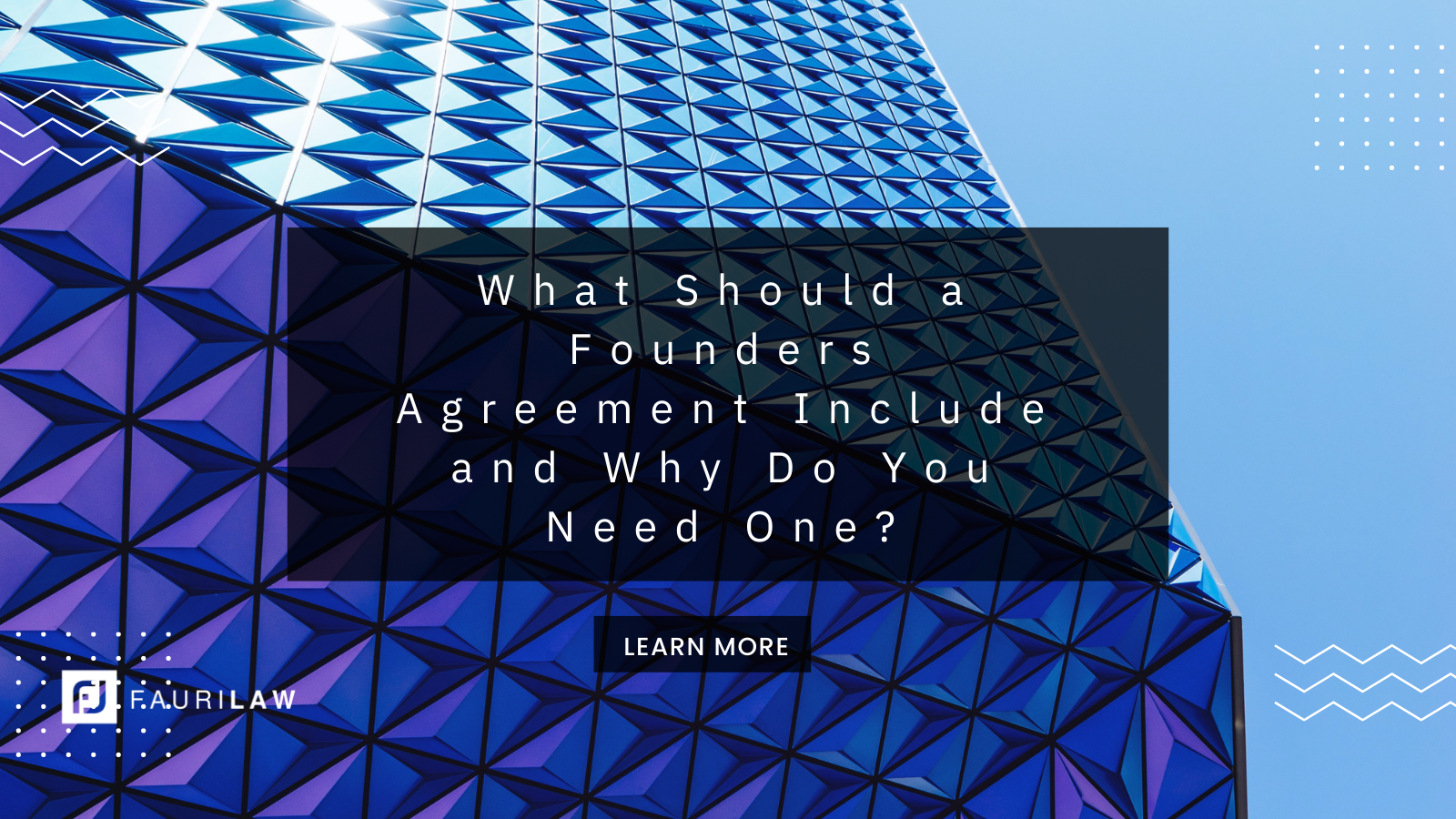
What Should a Founders Agreement Include and Why Do You Need One? Fauri Law Explains
A founders agreement is a baseline for how your co-founder relationships will work in the future, how your company is structured, and what each owner brings to the business. It’s important no matter what type of business entity structure you have. Here are some of the reasons why having a founders’ agreement is essential.
- When people come together to form a business, there is often an atmosphere of optimism and excitement. The founders often have a clear sense of their roles, objectives, and ultimately what they will get out of the business. All of this may have been discussed at length, but in the absence of a written agreement, problems can arise in the future – problems that can ultimately jeopardize your business. A clear founders agreement is vital to the future success of your business.
- A founders’ agreement is an essential document that sets out various expectations and commitments between the founders in your startup. It deals with issues such as issuance of equity shares, vesting of those shares and what happens to those shares if a founder does not live up to expectations, leave or be terminated. The founders agreement serves as a blueprint for how the founders will run a business before they officially begin doing business together.
- Many startups that are looking for external capital funding may rely on a founders’ agreement until their first major round of funding, as the terms of a shareholders’ agreement will typically be heavily negotiated by the investors. If you choose to incorporate right away, you may move directly to a more formal shareholders’ agreement, but often with a startup, you’ll want to test the water first before jumping in. Either way, each agreement provides certainty, which is essential at this stage.
The Essential Elements of a Founders Agreement
A founders agreement shouldn’t be a form document that you printed off the internet. It needs to address your business’s specific needs. Among other considerations, your founders agreement should addresses the following issues:
- Share ownership and vesting: Consider who owns what percentage of the business. Is the ownership percentage subject to vesting based on continued business involvement and performance? What happens if, under the founders’ agreement, one founder does not live up to expectations? How is it resolved? Consider including vesting provisions to your agreement to deal with situations where one founder didn’t stay with the company very long and leave voluntarily or be terminated. In these situations, if there hadn’t been vesting provisions, the person who didn’t stay at the company would have walked away with all of his shares, and the remaining founders would have had no differential ownership going forward. There is a clear incentive to work your hardest and participate constructively in the team by vesting each founder, beyond the elusive founder’s moral imperative. The standard vesting schedule in Silicon Valley is four years, with 25 percent vesting upon the completion of one year’s service and, after that, the remaining shares vesting in equal monthly amounts over the next three years.
- Management of the business: Consider who is responsible for what. How are major decisions and day-to-day decisions of the company to be made? how shall the directors be nominated? and who decides on share issuance and raising capital? For more on management of the business issues, please see our article.
- Triggering events: Consider what happens if your co-founder leaves. If the founder leaves the company for whatever reason, does he or she have to return their shares to the company or to the other founders? At what price is this sale going to take place?
- Intellectual properties (IP): Does everyone agree that the company owns all intellectual property and, if not, how does the company secure its right to use the developed IP for its benefit? Consider preparing an IP assignment agreement. A problem arises if one of the founders leaves before entity creation and takes his rights to certain IP along with him. The IP created sometimes never gets transferred to the Company at all. Often, the valuation of a startup’s IP portfolio is what investors and venture capital firms determine when considering buying in. What a potential investor wants to see is that the company owns the IP that was developed by the founders before the company was incorporated. For more information, read our blog about the types of IP agreements that startup founders should sign at the outset of their business journey, or visit our IP and Technology Law practice.
- Non-compete and non-solicit: Consider provisions that prevent founders from competing with the business.
- Employment of Founders: Will any of the founders receive a salary or any other incentives? How can a founder be dismissed as an employee of the company? Consider Founders’ Employment Agreement.
For further information, please visit our practice area page or
Book a free call
.

